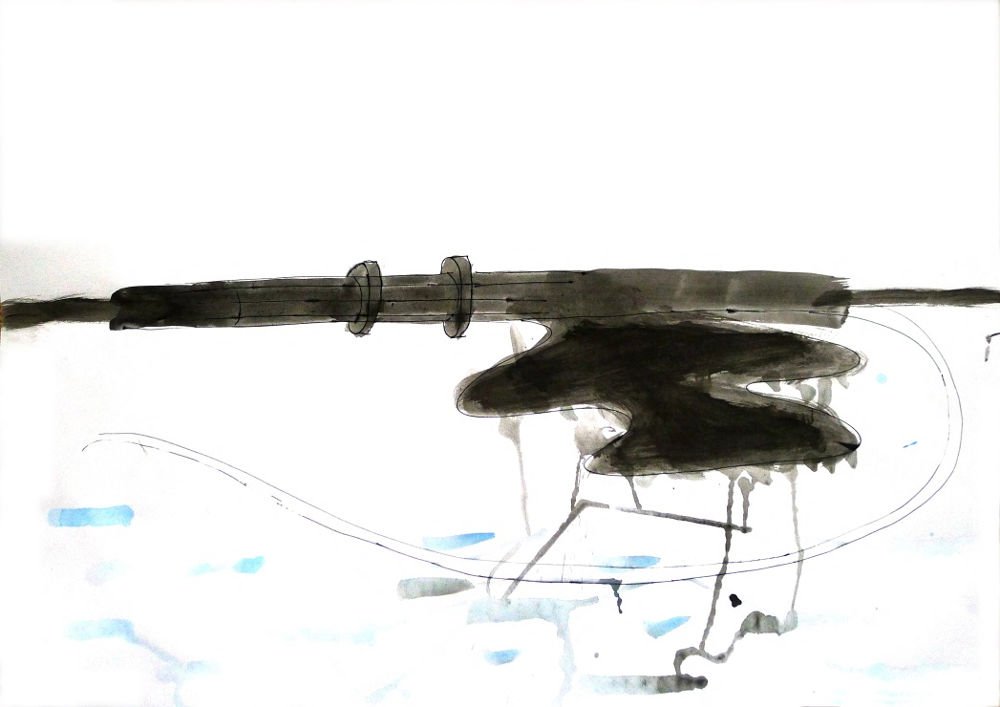Nigeria: Oil Pipes
This pipe runs through Ikarama, Nigeria. Painting by John Moran
This pipe runs through Ikarama, Nigeria.
Hundreds of oil spills occur yearly in the Niger River Delta, destroying the livelihoods of fishing communities. Amnesty International reports that Shell’s claims that these spills occur from oil theft are unfounded. Other news outlets report that in 2014 youth in Ikarama began sabotaging the pipe that runs through their communities. Filling one’s own community with the terror of toxins becomes a weapon for the weak in the Anthropocene; as human crude runs the cities of the North along border fences drawn by imperialism.
Spills form pockets of oil not crossable, like the fences that surround the compounds with names like Dallas, where Shell employees land and leave with helicopters.
Hydroimperialism, and the draining and reclaiming of swamps for capital, the reworking of deltas and the specter of extraction, is one of the Anthropocene’s stories.
As Timothy Mitchell writes, the politics, economies, and social relations of our worlds are engineered through energy flows. Estuaries are nodes in networks of accumulation.1
The pine in Ikarama becomes a boon along the Gulf of Mexico, a floating barrier on water to stop, control, and channel the BP oil spill.
As reported by Eben Kirksey, Nicholas Shapiro, and Maria Brodine in The Multispecies Salon, Jacqueline Bishop, a New Orleans artist, began cleaning thousands of horseshoe crabs with a Q-tip, an unloved species ignored by rescue efforts. Despite the wall of her swamp boots, several layers of skin were eaten off the bottom of her feet, likely by Corexit, the oil dispersant BP sprayed in the Gulf. Pollutants move through fences and skin. She writes, “Swabbing with the Q-tip was the same gesture as painting, except I was taking oil off instead of applying it.”2 She sets down a shell, just like the father of the founder of Royal Dutch Shell oil, who first considered the potential of extraction in the Black Sea while on a shell collecting trip.
The crab’s shell is a resistance, a barrier, to being eaten by others.

